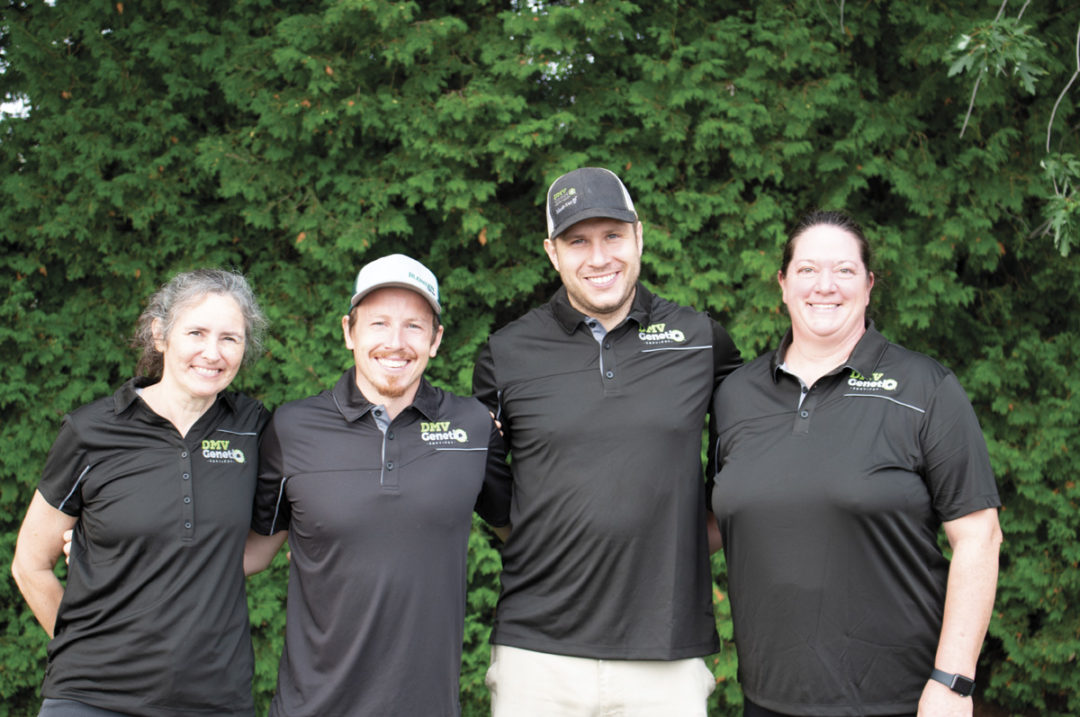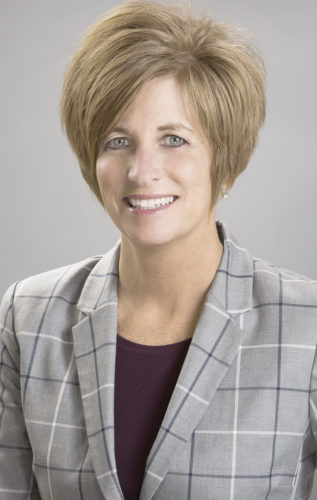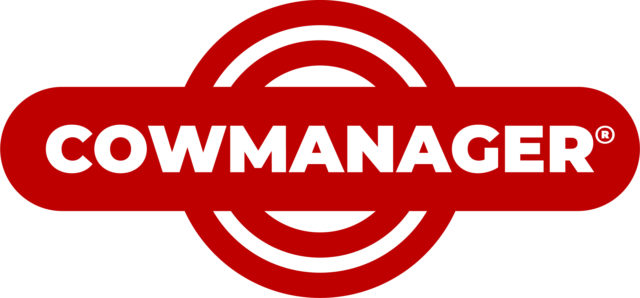To read this article in French, click here.
When Jonathan Lehouiller was young, he knew he wanted to be a veterinarian. Fortunately for the dairy and beef industry in eastern Canada, he became a veterinarian and an entrepreneur to the benefit of many. Recognizing a need for local breeders, Lehouiller has built a bull facility to accommodate one bull or many. On the female side of reproduction, he offers in vitro fertilization services through Clinique Vétérinaire Centre-du-Québec. DMV GenetiQ Services has grown from offering bull testing to building an encompassing bull collection, freezing and export site. Through recent partnerships as well as support from local farms, DMV looks to build on a solid future.
The bull business
Lehouiller, the general manager, and the staff at DMV are factors in the development of farm-owned bulls. Lehouiller grew up on his family’s dairy farm until his parents sold the dairy and converted to beef. He always knew that he wanted to be a veterinarian. After graduation from veterinary school, he was working with bull evaluations in the Abitibi area, as there was no one else offering these services around that region. In 2015, he moved to Drummondville and continued to offer bull testing services through his work at the Clinique Vétérinaire Centre-du-Québec.
Around this time, he received his certification to freeze semen for local farms that wanted to use their own bulls on their farms through artificial insemination. Bull owners began to approach him about selling that semen to others. That was where the idea came from to start a bull stud where bulls could be housed, collected, semen frozen and then marketed by the bull owners.
In 2017, he visited bull housing facilities in western Canada as he was deciding just what would make the best housing for his new venture. In 2019, the first set of bulls, primarily beef, arrived. A year later, customers requested that the collection centre become accredited to ship semen to the European Union, a request that Lehouiller accommodated. It was at that time that a second bull housing facility was acquired.
The following year, a third site was rented while expansion and remodeling were occurring at the previous sites. It was around that time the collection centre also reached an agreement with another company for the use of a sexing machine so they could offer sexed doses of semen for clients. Lehouiller and the staff saw this as a major advancement for the business.

The lab room provides an optimum space for freezing and sorting semen. Photo courtesy of DMV GenetiQ Services.
In 2022, a major expansion of the facilities was completed by investing $2 million and adding 60 more box stalls. In all, 150 bulls can be housed at the three sites, with the current number housed around 110. The warehouse and office area were also updated to accommodate the fast-growing business. What grew from five employees just four years ago is now home to 23 employees and four veterinarians.
Clients are offered an option to house their bulls at an approved export facility or at the site where semen will be kept in Canada. Bulls are tested for infectious bovine rhinotracheitis (IBR) before being placed and are appropriately assigned housing. New bulls are welcomed every two to three months and kept in quarantine until all tests are passed. Each site has a quarantine area with one of the three sites housing bulls that are no longer collected.

Bulls are housed at three sites based on EU eligibility status. Photo courtesy of DMV GenetiQ Services.
A major springboard for the company was an investment by Blondin Sires. Calling it a win-win situation for both, Lehouiller states, “DMV provides the expertise in freezing, management, collection and production of quality semen while Blondin has the expertise in acquiring the bulls, sales and marketing on an international level. With the success of Blondin Sires, it became logical for them to purchase a bull stud, and we were all set up to assist. We are both very excited about the partnership as Blondin currently has 60 bulls at our facility. With the buy-in from Blondin, we were put on the map on an international level, and we are very grateful for their support.”
One of the keys to the success in this business has been the willingness to work with individual breeders to collect and test their bulls. The company prides itself on working with one bull from a farm or as many as a dairy producer would like to send. Included in the list of clients are Stanton Genetics, Black Silver Bovine Technology, Holdstar Génétique Inc. and several other major dairy and beef producers from across the region.

The collecting room is sanitized regularly resulting gin high quality semen. Photo courtesy of DMV GenetiQ Services.
Embryo transfer and IVF to serve the community
For many, testing bulls and producing quality sexed semen would be enough. Lehouiller and his partners, Drs. Roxane Rémillard, Nicole Ruest and Jean Hébert, wanted to further share their skills and expertise with the Canadian dairy and beef industries.
Back in 2015, as the bull business was amping up, Lehouiller began to do conventional embryo transfer. This grew and Clinique Vétérinaire Centre-du-Québec was able to offer on-farm collections complete with a lab in a mobile trailer that cows entered into for collection of embryos. Lehouiller studied at the IVF Bioscience at Copenhagen University in Denmark and began IVF collections with oocytes being sent to an IVF company in Quebec.
Recognizing the desire for more economical oocyte pick up (OPU) and IVF lab work, the team ordered all of the lab equipment they would need and began construction of their own IVF facility in 2018. With similar results as they were getting at the other lab, DMV has given producers an opportunity for lower-priced IVF services with very good embryo development rates, pregnancy rates and live calves. At the request of their customers, they became accredited to produce embryos for export, including the EU and any country that accepts IVF embryos.

The face of DMV GenetiQ Services has expanded to meet the needs of area cattle producers. Photo courtesy of DMV GenetiQ Services.
The future
Lehouiller is the current president of the Canadian Embryo Transfer Organization and is a sought-after speaker on reproduction in both male and female cattle in Europe and other regions, such as Dubai. He also holds leadership roles in bovine theriology, the study of reproduction. He is a key factor in beef embryo and semen production as one of the very few practitioners in that role in the area. Lehouiller is involved in numerous research projects and partners with the European company IVF Bioscience to develop IVF products and to get new products released.
DMV GenetiQ’s plan is to continue to grow and expand while offering reproductive services to area producers. They are hoping that people will continue to shop local right there in Quebec yet continue to grow international markets for their clients. A current challenge is to keep up with sexed semen capacity, a good problem to have and one that will be solved soon.
By focusing on the client, the farm next door, and by offering reproductive services for both males and females in the cattle sector, these businesses have taken off in less than 10 years. Identifying a need for affordable IVF services with solid results and a facility to collect and freeze quality bull semen for whoever would like their genetics preserved has propelled this group of veterinarians into the unique situation they have created.











